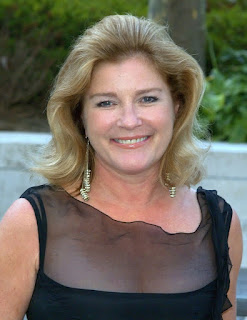 |
| Duncan Bannatyne |
While rags-to-riches memoirs abound, I doubt there are many as genuine, gripping and just plain fun to read as this account by Duncan Bannatyne.
During his early years, though none of his friends or neighbors were wealthy, quite a few families could afford cars, televisions, and other conveniences of the time.
Whatever their financial position, no other child he knew needed to go without the occasional treat, such as an ice cream from a passing vendor. The standard parental response to the young Bannatyne questions as to why he could never have one, was simply that they were poor.
They viewed this poverty as an innate condition, not to be complained-of, as there was absolutely no expectation of change.
Indeed, When Bannatyne began his first major commercial venture, his father stated that people like them did not start businesses. It sounded as if they were born with a taint which would prove inescapable.
As this autobiography shows, while never anticipating the affluence he would one day obtain, he did not accept this predestined reality. At a fairly early age, he decided he would find or forge some pathway viable enough to provide himself and those close to him with those amenities taken for granted by others.
Today, there is a great deal of talk regarding overall concepts and the big picture. Often, however, this belief in future billions as the well-deserved consequence of a dream, tends to allow would-be entrepreneurs to ignore the finer details which create its groundwork.
It was this awareness of seeming trivia which garnered Bannatyne his initial small business. Having noted newspapers were not being delivered to his own and similar vicinity, he approached the lady in charge, to ask for a job in so-doing. She replied, in a somewhat high-handed tone, that no-one in those areas could afford such a service. Instead of accepting her snub, Bannatyne went door-to-door. Soon, he was able to offer a list of one-hundred potential partakers of such a delivery service. This documented number left the elitist lady with little choice but to hire him.
As a businessman, with savvy acquired by experience, he realized it would have been far more advantageous to offer to sell her his list. Still, for a boy starting out, he showed a strong instinct for economics development.
Later, this understanding of small things was to bolster his sales in his role as the same type of ice cream vendor who’s goods had eluded him as a young boy. Why not take a few seconds to draw a face on an ice cream, or to greet a boy with “Johnny” written on his T-shirt by asking, “What would you like today, Johnny?”
A few further examples of his acumen indicate his reasons for such astounding success, as well as his ethical framework.
If he signed a contract, then found several thousand pounds added to his bill as customary expenses, he refused to pay them. Limousine travel, nights in upscale hotels, exorbitant dinners with “clients, unless a provably part of the contract, he would not pay. In addition, he puts his name on any type of enterprise he chooses to enter:, health clubs, care homes and such. Every member of one of his fitness centers is given an email address where they are welcome to contact him, if they have a query or grievance which cannot be resolved by local staff.
In addition, from his outset, he prohibited waste. Although Paper clips are viewed by most companies as negligible, their incessant use can prove as costly as water left dripping from a tap. Hence, rather than purchase these clips, he instructed his clerical staff to remove them from any mail, and then reuse them.
When he decided to expand into care homes for the elderly, he pretended to be seeking a suitable residence for his mother. As such, he was granted investigative privileges not allowed to potential competitors. In this guise, he was able to contrast the foul conditions of some homes with the nurturing concern shown by others.
In ethical terms, at one point he was forced to realize a previously loyal employee was stealing money. When he confronted her in a direct but compassionate way, she conceded the truth of his findings, explaining her husband had abandoned her and their three children-her theft has truly resulted from need. He did not fire her, based on her vow not to defraud him again. Still, when he found she had defaulted upon this promise, he felt no choice but to end her employment. Still, though he could have brought legal action, he forbore to do so.
In recent times, Bannatyne is best-known for being a dragon on the widely televised ”Dragon’s Den”, a program in which would-be entrepreneurs are asked, in a verbal trial by fire, to justify why their idea is worthy of big-time investments. Although characterized as one of the most ferocious of dragons, in truth he cuts to the core of the question: if I invest in your plan, what returns can I expect, and by what documentation can you justify this belief. Unless the applicant has, or is willing to risk mortgaging a home and pursuing every feasible loan avenue, he says, “I’m out”, and that is the end of the matter.
Unless an entrepreneur believes enough in his idea to risk all he has on its chance of success, he has no right to ask anyone else to invest. Whatever his level of wealth, any investor has a right to know he will gain a significant sum beyond the amount invested. This bottom-line approach cuts through even the most eloquent pitch, or clever palaver.
 |
| Matt McCarthy |
Full Title: The Real Doctor Will See You Shortly: A Physician’s First Year by Matt McCarthy
Many of us, even those fortunate enough to live in parts of the globe where health care is most advanced, have groused, at times, as to the seemingly needless delays and ineptitude of those engaged in the medical profession. While some complaints regarding aspects of treatment are valid, I believe Dr. Matt McCarthy’s account of his first year as an intern will increase my empathy, especially when dealing with those agonizing through their year of internships.
To a large degree, the grinding and grueling nature of this work is deliberate. The belief is that those who cannot withstand the rigorous training process are not equipped to deal with the ceaseless day-to-day strife of becoming a full-fledged physician.
As it happened, one of his earliest patients, a middle-aged professor, might have died unnecessarily, due to Dr. McCarthy’s failure to gauge the potential implications of what appeared to be a trivial fact. Perhaps the castigation given him by his supervisor was more severe than this oversight warranted. Still, it alerted him to the need to treat even what might appear to be a simple anomaly as worthy of deeper examination.
A further hurdle lay in the lack of balance between the number of patients scheduled and the time allowed to deal with each one in a comprehensive manner. Hence, when a respectable-looking gentleman asked for a refill on his Viagra prescription, Dr. McCarthy could discern no reason not to oblige.
Chagrin and humiliation arose when his supervisor asked if he had read the patient’s chart well enough to learn the man had a criminal record which had resulted in imprisonment. He then felt the ultimate layer of shame when informed this patient’s conviction had been for sexual assault.
A question of humanity arose when, a woman with only a remnant of sight, afflicted with immune deficiency syndrome AIDS, was found to be carrying a small bag containing cannabis. Despite her pleas not to deprive her of it, as it comprised the only remaining relief she could find, ethical obligations compelled Dr. McCarthy to do so. Naturally, Any such lapse on his part would have placed his license to practice in serious jeopardy.
Still, a more subtle issue arose when this patient refused to take the medications prescribed to slow the progression of her AIDS. Her physical and emotional pain had reached a level where she could find no reason for prolonging her life.
This refusal forced Dr. McCarthy to accept the reality of the right of a patient of sound mind to engage in a form of passive suicide. Due to the rapport which had developed between them, for a few days she agreed to take a small number of tablets. Still, to his dismay and personal hurt, he found, one morning, this lady had checked herself out in the night, and could not be dissuaded from leaving.
Later, encountering her in the waiting-room, he told her how he had felt, and asked her reasons. She told him, in an almost maternal way, she had done what she felt was necessary, and that her departure had not in any way reflected a lack of gratitude for his care and concern. As they parted, he felt no certainty that she would go back onto those medications. Still, he knew he had offered her all he could in terms of support, and she had felt warmed by his kindness.
Sadly, this solicitude brought to the fore his most profound terror. After showing a more recent intern the most efficient way to draw blood from a patient, he inadvertently pricked his own thumb with the needle. This might have been a minor mishap, had the patient in question not been afflicted with AIDS.
Fear for his health as well as ethics required Dr. McCarthy to reveal this both to his supervisor and fiancee. While both of them gave him encouragement and and tenderness, they could not shield him from the horror of the potential effects if the disease were to take hold.
As a reader, I found the most moving part of this book to have been Dr. McCarthy’s generosity in confiding this to the above-mentioned female patient, along with a willingness to take his medications with her.
Ultimately, this memoir opens to us the small but persistent area of uncertainty between professionalism and humanity. In short, we are permitted to see both Matt as a human being and Dr. McCarthy as a physician.
 |
| Kate Mulgrew |
The title of this memoir reflects two levels of meaning. Kate Mulgrew was born in Dubuque Iowa on April 29 1955 with a full set of baby teeth. There is also the one in which she had an innate ability to develop the metaphorical teeth she would need in order to reach stardom in the cutthroat ambiance of the stage and screen spheres.
Although perhaps best-known for her seven-year role as Captain Kathryn Janeway on the long-lasting series Star Trek: Voyager, this memoir is by no means an addition to the often criticized genre of tell-all show business gossip. In fact, its ending is such as to have led me to do a search for Ms. Mulgrew’s later life.
Her early years within an Irish Catholic family did not contain as many hugs and cuddles as she might have wished. Still, when at age seventeen, she was accepted into the daunting Stella Adler Conservatory of Acting, her parents did all they could to bolster her hopes of success.
Tragically, a younger sister, Tessie, who Kate had treated as her slave, in terms of errands and tasks, contracted a slow-growing brain tumor. Sedated by morphine for two years, the family were forced to observe her gradual but definite deterioration. Still, despite Tessie's plea with Kate not to leave her in order to begin drama training, it was tacitly understood between these two sisters that Kate would be adventuring for both herself and Tessie.
Given that a large amount of successful acting entails reliving previous pain, Tessie’s illness and death doubtless came back to Kate when she needed to evoke a deep source of sorrow.
As with any young woman viewed as attractive and talented, Kate received a good deal of male adulation. Still, while acknowledging this with some natural joy, she also allows us, as readers, to see the absolute nakedness of her soul in despair. Having become pregnant in a relationship where marriage was not an option, with profound reluctance, she offered her unborn child for adoption, via a supposedly Christian organization.
After the birth, Kate persuaded a compassionate nurse to circumvent strict hospital rules by permitting her one small glimpse of her infant daughter. Brief as it was, this moment became infused into Kate’s waiting wellspring of love. Hence, interwoven throughout this memoir is her guilt and search for some information regarding this child. Her anguish became compounded when she learned, nearly twenty years later, the charity’s deceit as to the family to whom her baby was given.
Kate’s ability to create a credible character on an ongoing basis became clear when she played Mary Ryan in the soap opera Ryan’s Hope. A further triumph occurred when, portraying the central character in the 19th-century Norwegian playwright Henrick Ibsen drama, Hedda Gabler. Kate was told she was one of the few actresses to have truly comprehended and conveyed Hedda’s gnawing, overwhelming anguish.
The book goes on to describe further liaisons, and her disappointing marriage to Robert Egan. The two boys born of this union were not always happy with there mother’s sometimes lengthy absences. Their sense of desertion grew in 1995, when she accepted the prestigious but absorbing role of the first female captain, Kathryn Janeway, in the renowned series Star Trek: Voyager.
One of her most worthwhile points, I believe, is that a male actor’s need to be away for protracted periods is accepted as part of what daddies do. Conversely, no matter how scrupulously Kate Mulgrew screened and ensured the concern and abilities of nannies, her children frequently voiced or showed their rage, once even resorting to calling her a bad mother.
This echoed the comment of a previous colleague as to her inability to be a true mother, due to her emphasis on her career. The criticism plagued Kate, although she continued her work, returning home or bringing her children with her as often as feasible. The question of equilibrium between career and maternal duties may never be completely resolved.
My own perspective is that Kate Mulgrew made the best compromise she could between nurturing her children almost entirely by herself, and forfeiting all those years during which she had striven to establish herself as an actress.


